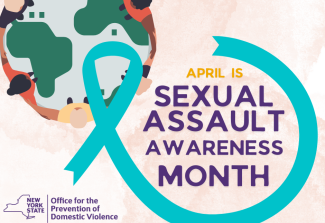Title IX
“No person in the United States shall, on the basis of sex, be excluded from participation in, be denied the benefits of, or be subjected to discrimination under any education program or activity receiving federal financial assistance.” — Title IX of the Education Amendments of 1972, Implementing Regulations at: 20 U.S.C § 1681 & 34 C.F.R. Part 106
If you need immediate help or this is an emergency, please call 911 or University Police at 518-564-2022
How Does Title IX Protect You?
The Title IX office ensures equitable treatment and provides support, resources and education to address and prevent instances of sex discrimination, harassment, and violence within the university community.
Title IX serves all students, faculty and staff regardless of your sex, gender identification or expression, race, national origin, immigration status, citizenship status, religion, creed, age, disability, sexual orientation, romantic orientation, genetic information, economic class, pregnancy status, parental status, veteran or military status, political status, and/or other intersections of individual identity.
Resources & Reporting in Instances of Sexual Misconduct
We will ensure that you have access to appropriate resources and reporting options in the event of any sexual misconduct including:
- Sex discrimination
- Gender discrimination
- Sexual harassment
- Domestic violence
- Dating violence
- Stalking
- Sexual assault
Support & Education
Our office also oversees education, prevention and outreach efforts by the campus community as well as works to connect you with advocates and advisors as you navigate your options.
The Title IX office also provides supports and accommodations for pregnant and parenting students and employees including:
- Pregnancy protections including academic accommodations
- Breastfeeding/pumping rights as well as accessibility to appropriate accommodations and spaces
News
SUNY Plattsburgh, NCCC Announce New Admissions Initiative

SUNY Adirondack Students Benefit from New Dual Agreement with SUNY Plattsburgh Queensbury

SUNY Recognizes Two Plattsburgh Seniors for Excellence in Academics, Leadership
